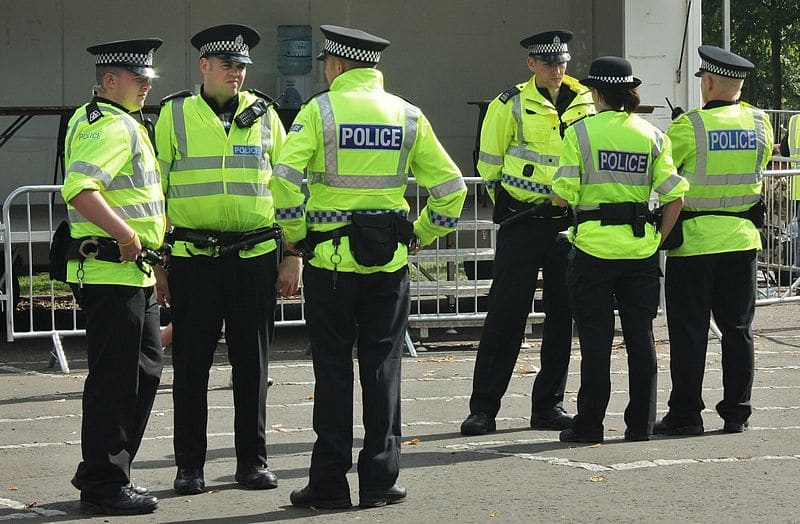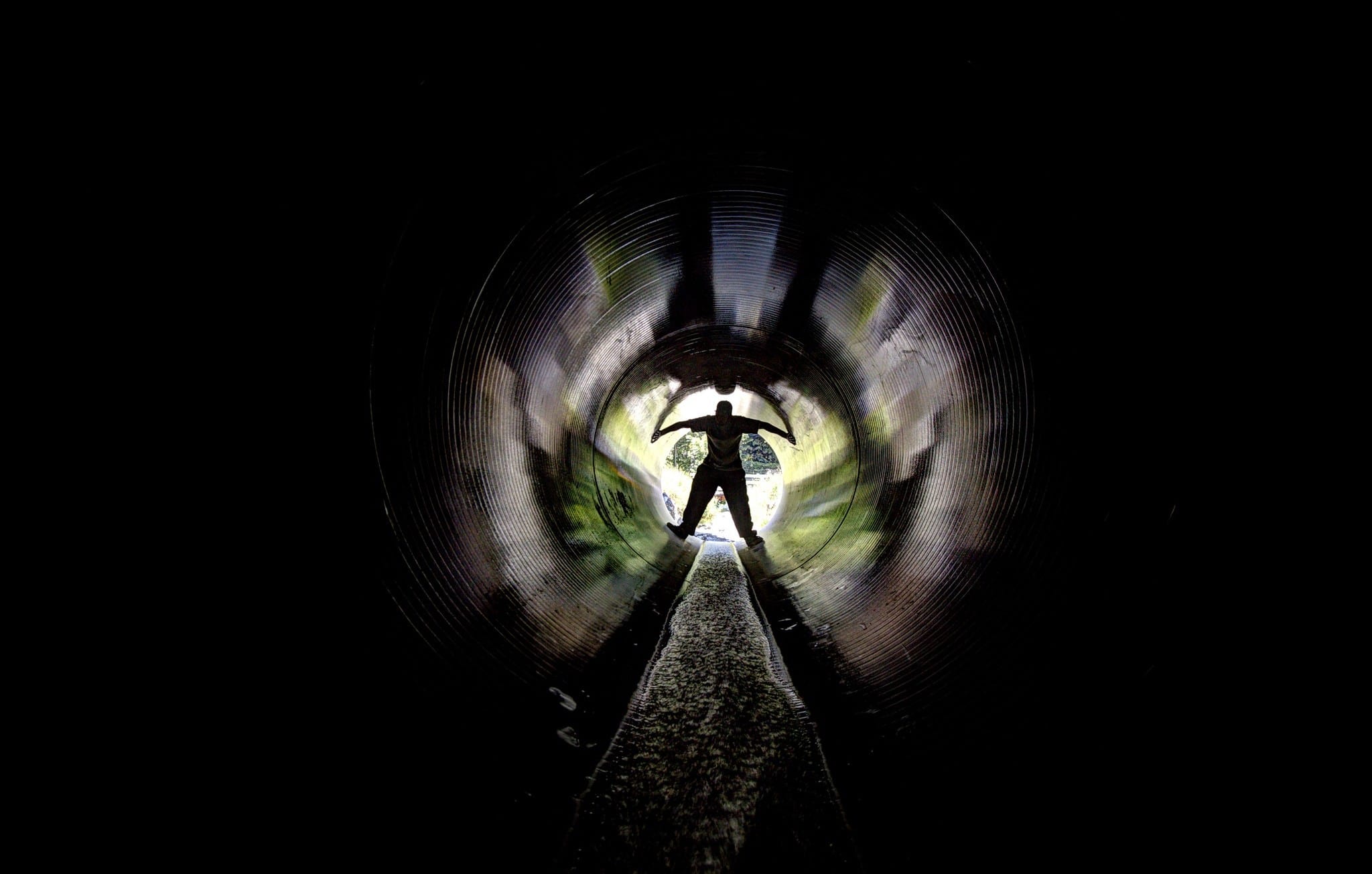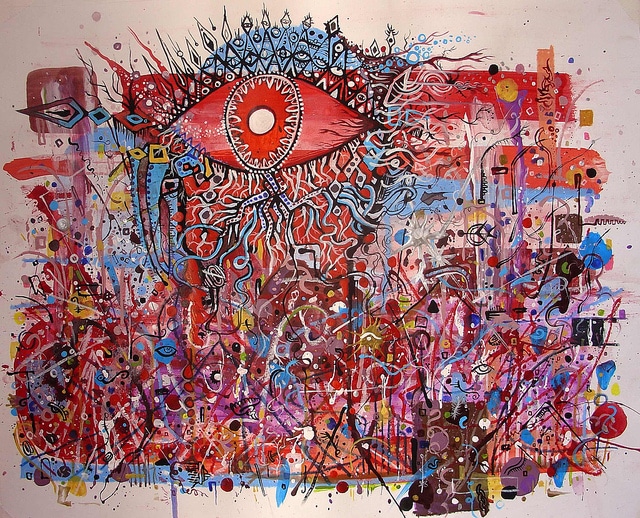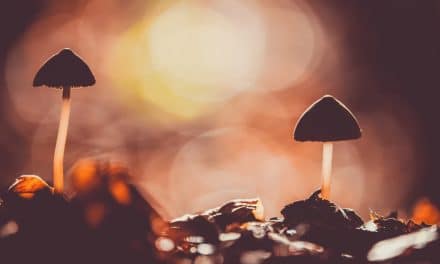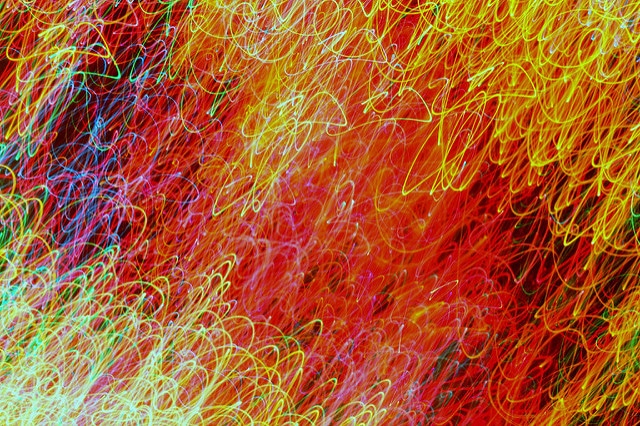
Even difficult psychedelic experiences can still have a good outcome, a recent study shows. | Source: Flickr CC user Kevin Dooley.
I recently found myself in a conversation with a man who, upon learning that I write about psychedelic therapy, shared a remarkable story. When he was 16, he unknowingly swallowed 32 tabs of LSD—a very heavy dose. It was a terrible time, he said, with acute anxiety and delusions that lasted for weeks, and it took him years to make sense of the experience.
I asked if he regretted it, thinking how terrible it would be to have a traumatic psychedelic experience during your formative years. After all, using psychedelics when you’re an adolescent carries a higher risk of lasting psychological damage because your personality and cognitive skills are still developing.
But he didn’t regret it. Despite the difficult parts, overall he was left with an overwhelming feeling of connection and harmony with the world. Rather than give up in the face of difficulty, he said, “It taught me that every challenge is a learning opportunity.”
Taking psychedelics at 16 years old is far from exemplary, but I still found the man’s response interesting. Despite a painful experience, he experienced a lasting positive shift in perspective, a phenomenon that he’s not alone in. It turns out a lot of people who find themselves in difficult psychedelic situations still believe they benefited from the experience—in fact, for some people, it seems the degree of difficulty is related to how just meaningful the experience is.
Research published earlier this month showed that a majority of people who reported a “challenging trip” on psilocybin mushrooms felt they still benefited from even the more difficult aspects of the experience. The results shed some light on some interesting clues into how people deal with difficult psychedelic experiences, how we can support people through challenging moments, and why some pain might be inherent to the growing process.
“Personally Meaningful, Spiritually Significant”
In the study published last month from John Hopkins University, 1993 people were asked to weigh in on their most difficult psilocybin experiences. Most participants were experienced users and most considered their emotional, physical, and social setting going into it to be conducive to a good experience. Instead, half of them had what they rated as one of the top five most difficult experiences in their lives, and the study showed some interesting results:
- 84% of participants said they benefited from the most challenging parts of the experience, and 46% said they would want to repeat the experience, including the challenging moments.
- 60% rated it as one of the top ten most personally meaningful experiences, and 50% said it was at least “very spiritually significant.”
- 3 in 4 participants said the experience led to increased personal well-being and life satisfaction.
Results showed that the longer the experience, the more difficult it was, although duration did not have much bearing on how meaningful it was. But perhaps most interesting was that the more difficult the experience was rated, the more personally meaningful a person was bound to rate it.
Those results suggest that with higher difficulty comes more meaning. We can’t jump to any conclusions yet, but some people do argue that pain is inherent to the growing process of many psychedelic experiences. Even outside psychedelia, it’s not an uncommon idea that difficult experiences provide the best lessons—the phrase “growing pains” comes to mind, as does a line from a Rumi poem: “Until you’ve found pain, you won’t reach the cure.”
The Benefits of Untoward Reactions
There hasn’t been much research into the nature of difficult experiences, but what has been done shows similar results. One 1967 case study called “Untoward Reactions to Hallucinogens,” which categorizes and analyzes varied negative reactions to LSD, still gives a nod to some of the core benefits of using psychedelics, referencing individuals who said the experience led to greater insight into their interpersonal relationships, better problem-solving skills, and greater creativity in their work. While the study came to the conclusion that there was “little positive value for most,” it also acknowledged—in a seemingly counterintuitive statement—that most participants thought it “had been beneficial in some way that could not be well defined.”
Studies like these that focus on the negative side effects of psychedelics seem to miss the point that people still found their experiences meaningful and worthwhile. Meanwhile, personal anecdotes and studies like the one from John Hopkins suggest that the degree of difficulty could actually be a key part of the healing process.
So why do people learn from difficult psychedelic experiences? It’s reasonable to think that psychedelics help us push through our psycho-emotional barriers by helping us see them more clearly. As humans, our deepest need is to be connected to one another, but painful life events cause us to put up defenses to protect our vulnerabilities, which effectively severs those connections. Psychedelics help you identify those defenses and rebuild a sense of connection, but that work, like any therapy, can also be painful.
Adapting to and Preventing Difficult Experiences
Even if the difficulty of an experience may be positively related to its meaning, that doesn’t mean you want to encourage a challenging experience. The survey also shared several strategies that participants used to help navigate challenging experiences, including calming the mind, grounding the body, changing location or social environment, changing music, and asking for help from a friend. Interestingly, these strategies only worked about half of the time.
Indeed, it seems that set, setting, and a guide were some of the biggest indicators of an experience’s difficulty or duration. The results supported the fundamental importance of “set and setting”—participants who had a positive emotional state before the experience and had physical comfort and social support during it reported all-around less difficulty and a shorter duration of difficult portions. It also supported the widely held idea that having someone there to support you is a good idea. For the 25% who had a guide or sitter, having someone there decreased the duration of the difficult portion (though not the degree of difficulty).
While the survey results shed a light on psychedelics’ unique healing properties, they’re not definitive. The survey sample was demographically narrow with 78% of participants being male and 89% white, which means more research is needed to understand the relationship between psychedelic challenges and individual benefit. But while we still have more work to do in understanding the nuanced role that set and setting, guidance, and coping strategies play—not to mention dose, keeping the man and his 32 tabs of LSD in mind—it seems promising that even a challenging experience can be a good one.

